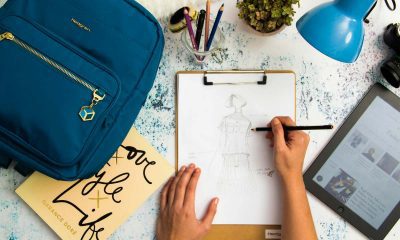Business
Theranos Founder Elizabeth Holmes Faces Prison
Published
4 years agoon
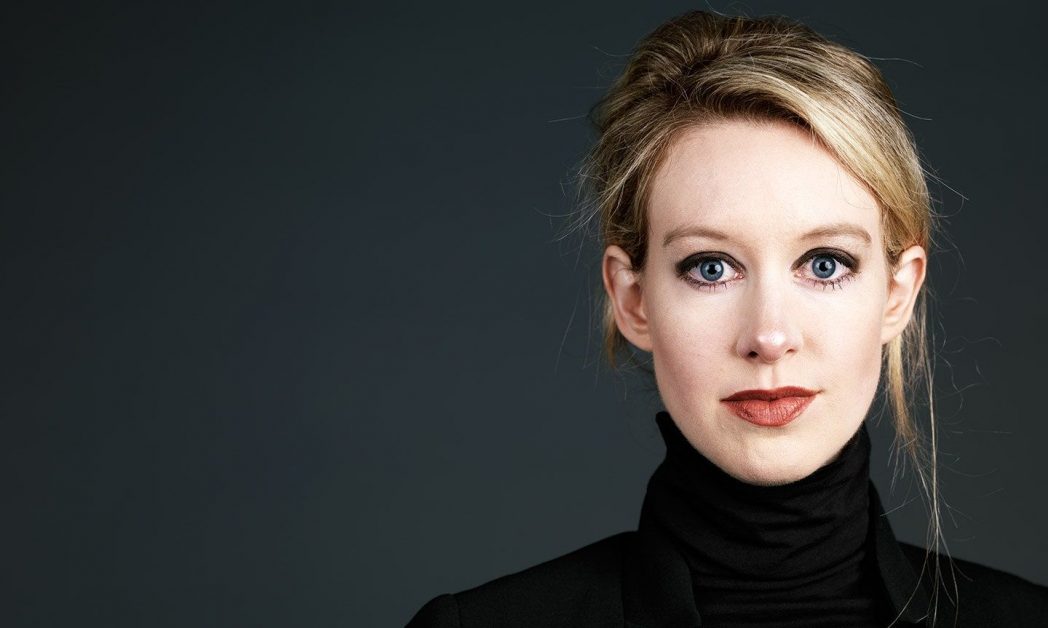
On August 31, 2021, Theranos founder Elizabeth Holmes begins her trial. The ex-Silicon Valley darling and her former COO, Ramesh “Sunny” Balwani, are charged with two counts of conspiracy to commit wire fraud and nine counts of wire fraud.
What was supposed to be an innovative method of drawing, testing, and interpreting blood results turned out to be an allegedly fraudulent scheme to defraud investors, medical professionals, and patients. If convicted, Holmes faces a maximum sentence of 20 years in prison and a fine of $250,000, plus restitution, for each count of wire fraud and for each conspiracy count.
How did a promising young entrepreneur and a brilliant idea turn into such an ugly story of lies and abuse?
Founding Theranos
Elizabeth Holmes founded Theranos in 2003 with a mission to create a device that would collect “vast amounts of data from a few droplets of blood.” Citing her fear of needles, Holmes was motivated to revolutionize the way we collect and test blood from vials and vials to a simple pinprick on the finger.
Several people, including Stanford medicine professor, Phyllis Gardner, told Holmes that this idea was “physically impossible.” She ignored them and pushed on until she found someone who would listen. That person was Stanford dean of Engineering and Holmes’ advisor, Channing Robertson.
Robertson would become Theranos’ first board member. Through Robertson, Holmes was able to meet a variety of influential older men including Secretaries of State George Shultz and Henry Kissinger.
That’s when the money really started coming in.
Raking In The Cash
By the end of 2010, Theranos had more than $92 Million in venture capital and was growing quickly. Holmes had put together “the most illustrious board in U.S. corporate history,” and was only growing in influence and power.
For an idea as revolutionary as Holmes’, she was going to need all the money she could get. After all, what she was proposing would change not just the medical science industry but the chemical engineering industry and all the lives of medical professionals and even more patients.
In September 2013, Holmes and Theranos had partnered with Walgreens to launch in-store blood sample collection centers in Arizona. An ad directed by Academy Award-winning Errol Morris helped sell this concept of simple blood taking.
All of the vials of blood and a fear of needles were going to be a thing of the past. The future was a black box called, “The Edison.”
The Edison
Named after the original “fake it til you make it” master, Thomas Edison, Elizabeth Holmes’ device was about the size of a Keurig coffee machine or old school tower computer. In theory, the Edison could run a multitude of tests off of a single drop of blood.
There were, however, whispers and murmurs that this revolutionary device did not work. At all.
The Edison was designed to perform “immunoassays.” which look for the presence of an antibody or antigen in blood or fluid. Your standard, run-of-the-mill immunoassay test is capable of measuring things like drug levels, hormone levels, even certain cancer markers.
Theranos had a testing “menu,” which is an innovative idea on the surface. They offered roughly 250 tests with just a drop of blood. Using a robotic arm, the Edison was able to automate what a chemist did in a lab:
Take samples
Dilute samples
Add antibodies and a reagent
Reveal a result
But, as those whispers and murmurs teased, the Edison had some serious technical issues. Pieces of the machine would break off, doors wouldn’t close, the temperature wouldn’t regulate, blood would spill, vials would break, and samples would be contaminated.
Engineers, scrambling to find solutions, would raise concerns with Holmes only to find themselves dismissed or terminated from their position.
Despite these issues, Holmes would repeatedly lie to investors, Walgreens, and the patients optimistic about this new, simpler blood testing. If you were to meet Holmes at one of her many speaking engagements, you’d think Theranos was creating a device that was going to change medicine, and the world, forever.
Investigation and Pushback
Wall Street Journal investigative journalist John Carreyou received a tip from a medical expert. The Edison was not working as advertised. As a result, he began a months-long investigation into Theranos. He spoke to ex-employees and whistleblowers about the corporate environment of siloing and silencing to protect Holmes’ ambitions.
When Holmes discovered the investigation, she launched a campaign through lawyer David Boies in order to prevent Carreyou from publishing. This campaign included legal and financial threats against WSJ, Carreyou, and the whistleblowers.
However, in October 2015, Carreyou went through with publishing a “bombshell” article. The story detailed how the Edison delivered inaccurate results. As well as Theranos using other commercial machines for a majority of its testing. The lie being that those tests results came from the Edison.
Elizabeth Holmes fought back. On the evening Carreyou’s article publication, Holmes appears on CNBC’s Mad Money with Jim Cramer.
Cramer said, “The article was pretty brutal.”
To which Holmes’ infamously responded, “This is what happens when you change things. First, they think you’re crazy, then they fight you, then you change the world.”
After an inspection revealed irregularities, the Centers for Medicare and Medicaid Services (CMS) sent a warning letter to Theranos. By July, CMS officially banned Holmes from owning, operating, or directing a blood-testing service for a period of two years.
Once the writing was on the wall, Walgreens ended its relationship with Theranos and closed all in-store blood collection centers. Things were coming to an end.
Legal Trouble
In 2017, State of Arizona filed suit against Theranos. The state alleged that Theranos had sold 1.5 million blood tests to Arizonans all while concealing or misrepresenting facts about those tests. By April, Holmes had reached a settlement.
In March 2018, U.S. Securities and Exchange Commission (SEC) charged Holmes and Balwani with fraud.
Later that month, Holmes settled. The terms of the settlement included that Holmes surrender voting control of Theranos. Along with a ban on holding an officer position in a public company for 10 years, and a $500,000 fine.
At Theranos’ height, the company boasted over 800 employees with more to come. In October 2016, the company had fired 340 of its staff. By January 2017, 155 employees were fired. By April 2018, 105 employees.
On September 5, 2018, Theranos announced that it had begun the process of formally dissolving. Holmes’ dream of changing the world had just ended.
The Trial
After a two-year investigation by the U.S. Attorney’s Office for the Northern District of California, a federal grand jury indicted Elizabeth Holmes and Sunny Balwani for fraud.
Both have pleaded not guilty.
The trial will take place over four weeks.
Chris Blondell is a Philadelphia-based writer and social media strategist with a current focus on tech industry news. He has written about startups and entrepreneurs based in Denver, Seattle, Chicago, New Haven, and more. He has also written content for a true-crime blog, Sword and Scale, and developed social media content for a local spice shop. An occasional comedian, Chris Blondell also spends his time writing humorous content and performing stand-up for local audiences.

You may like

AI tools have evolved fast, and entrepreneurs now rely on them not just to automate tasks but to scale entire workflows. That said, it’s not surprising that many business owners are leveraging the power of cutting-edge technology. And this is where AI tools for entrepreneurs come in. Let’s look at what they are and a few examples you can check out.
1. Aomni Agent
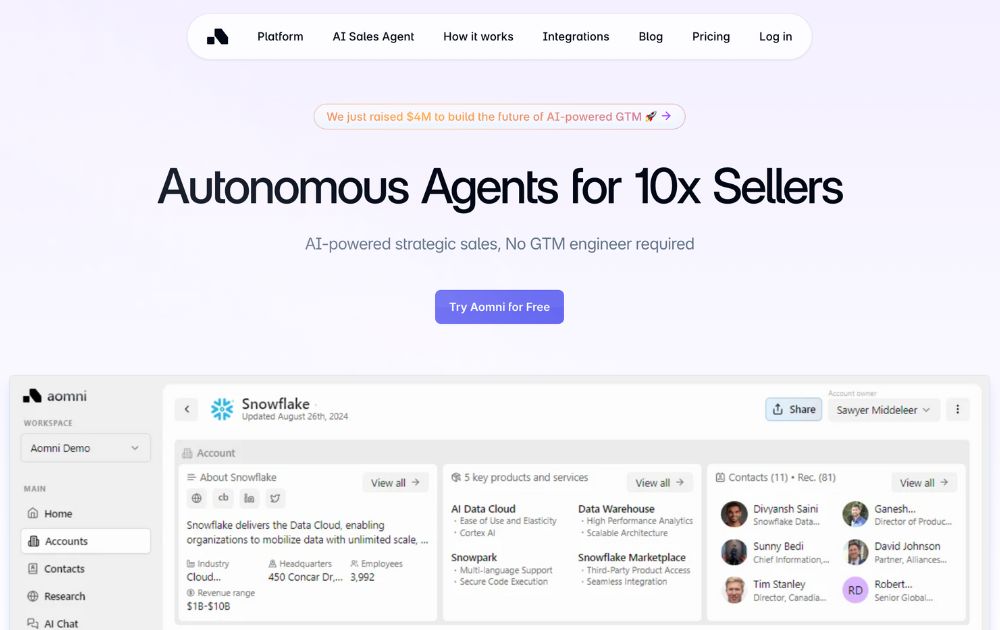
Packed with powerful AI-driven features, Aomni Agent is a tool that can help you grow your company’s outbound pipeline by conducting research to give you new Ideal Customer Profiles (ICPs). With it, you no longer have to create account plans for each of your prospects, as the AI tool will do it for you.
Aomni Agent engages with your customers, provides support, automates routine tasks, and gives you real-time insights and analytics, among many other features. To know its pricing and additional information, you need to contact them directly through their website.
2. Pictory
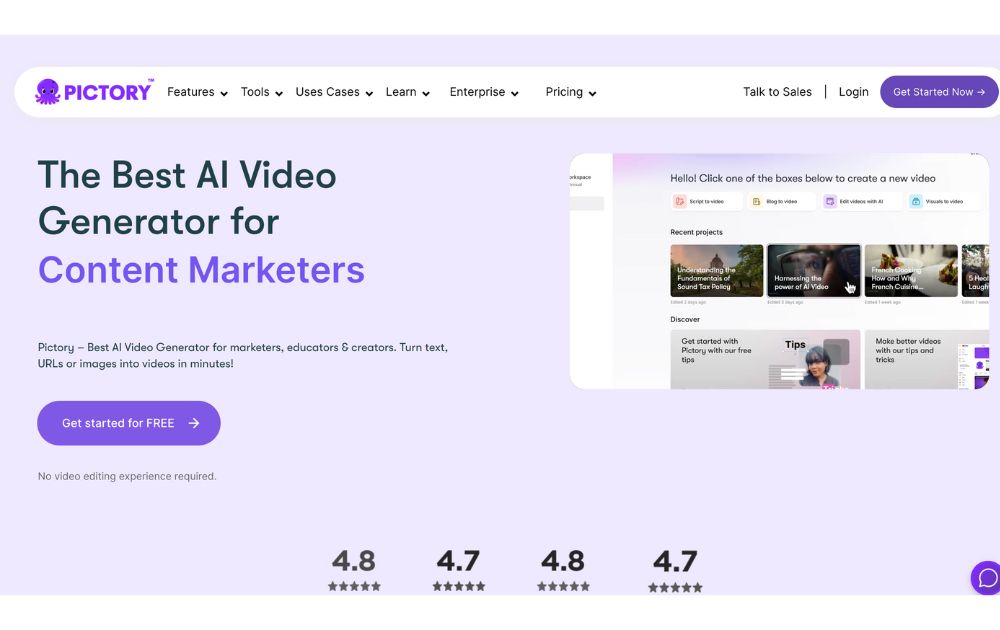
A video creation tool, Pictory, can help you create engaging and professional videos in minutes. It uses AI that automatically generates videos from your text, images, and audio. This means you get excellent results even without any video editing skills.
You can use Pictory to generate videos from your blog posts, articles, and other text. It can also edit existing videos and add images, music, or text. It offers a free trial and three plans with subscription fees that range from $23 to $119 per month.
3. Zeda.io
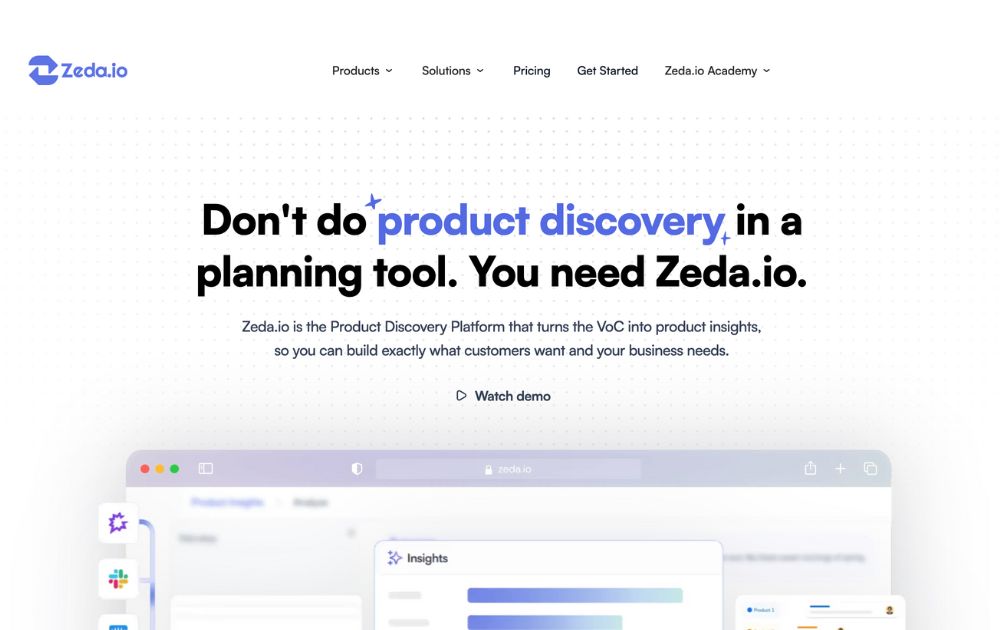
Zeda.io has grown into a powerful AI-powered product operating system. With its 2.0 update, the platform now connects customer feedback, product strategy, roadmapping, and internal documentation into a single intelligent workspace.
Its AI engine analyzes thousands of customer inputs, from surveys to reviews to support tickets, to identify patterns, prioritize features, and suggest product improvements. What used to take days of manual synthesis now takes minutes. The updated version also includes AI-generated product briefs, automated roadmap updates, and integrations with popular tools like Slack, Notion, and HubSpot.
4. Slite Ask
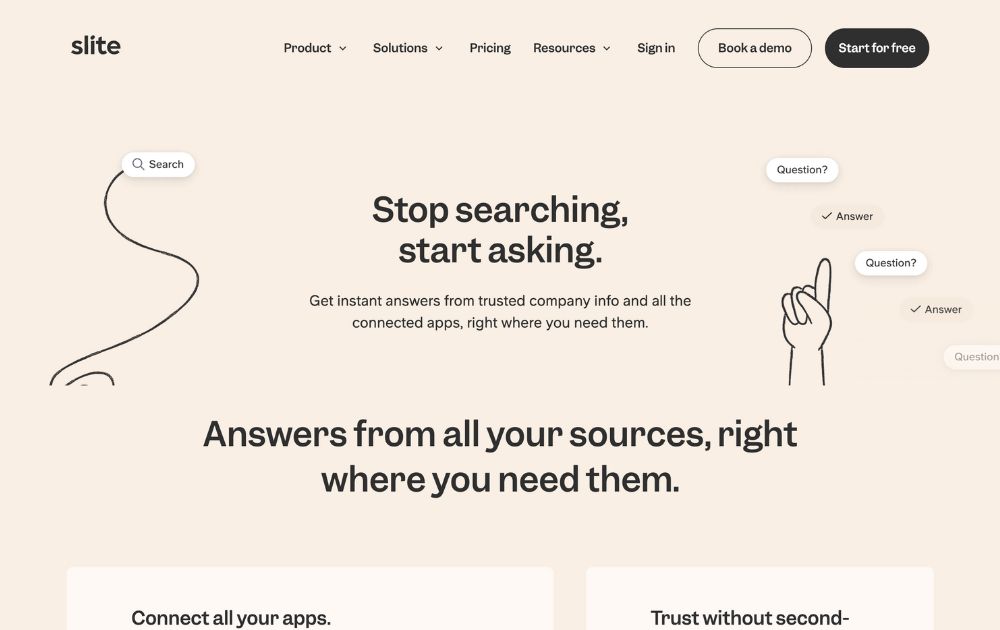
Slite Ask is one of the most reliable AI knowledge-base assistants for teams. Instead of manually searching docs or old messages, entrepreneurs can simply “ask” a question and get an instant answer based on their workspace knowledge.
The AI scans company documents, policies, SOPs, and internal notes to deliver accurate responses without hallucinations. This makes onboarding smoother and speeds up decision-making, especially for remote or hybrid teams.
5. Credal.ai
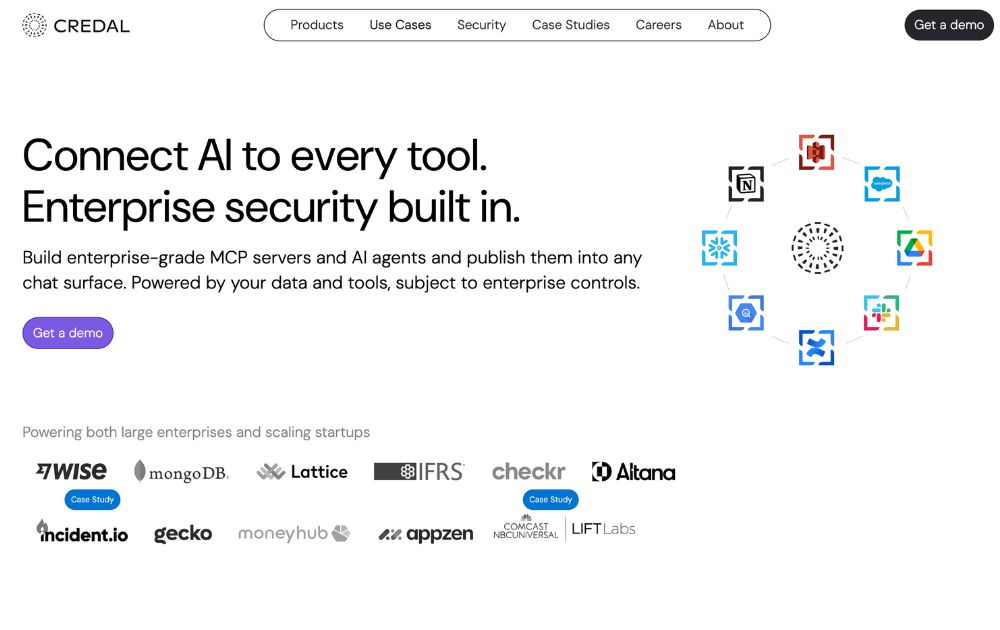
Keep your data safe with an AI tool that’s perfect for entrepreneurs. Credal.ai is a software that provides a secure environment for AI applications to run and monitors them for any potential security threats. This helps you protect your business’s sensitive data from unauthorized users.
Credal.ai protects your data from leaks, malicious codes, and unauthorized access. It has a free plan but with limitations, so to get the most out of this AI tool, a Team or Enterprise plan is recommended. Pricing starts at $500 per month.
6. Webscraping.AI
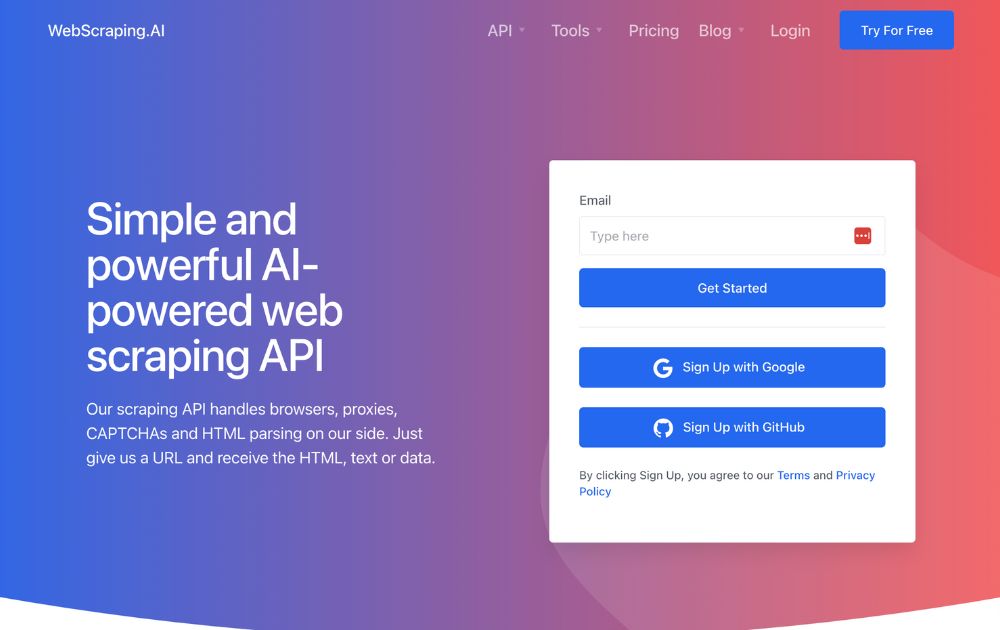
Web scraping is the process of extracting data from a website, such as stock prices, product details, company contacts, and many more. If you want access to this information, you’ll need Webscraping.AI. It is easy to use and won’t require you to have any coding or technical skills. All you need to do is enter the website you want to scrape, and the tool will automatically get the data from the website.
Webscraping.AI can help business owners make better decisions by providing accurate data to identify new opportunities. It can also help them make better decisions for their strategies. Pricing for this AI tool for entrepreneurs ranges from $29 to $249 per month, with no hidden fees.
7. ValueProp.dev

A value proposition is a statement that tells your customers what your product or service is all about. This can be tricky, but worry no more, as ValueProp.dev is an AI tool for entrepreneurs created explicitly for this. It uses machine learning to analyze your customer data to generate unique value propositions for you.
ValueProp.dev can help you improve your business by generating value propositions that significantly increase customer acquisition, retention, and sales. It is free for up to three value propositions, but they also have premium plans for more options and features. Pricing starts at $29 per month.
8. Lovo.ai

A text-to-speech and text-to-video platform, Lovo.ai can help you create engaging and informative content for your content marketing strategies. It uses AI to generate realistic and human-loke voiceovers, videos, avatars, and others. You can extend your reach globally as this tool can do voiceovers and videos in more than 140 languages.
Lovo.ai can help you increase your engagement, improve your SEO rankings, and boost conversions. You can try their free plan to give you an idea of what the tool can do for you. But for more features, a paid plan that starts at $19 per month can provide more value.
9. Zigpoll
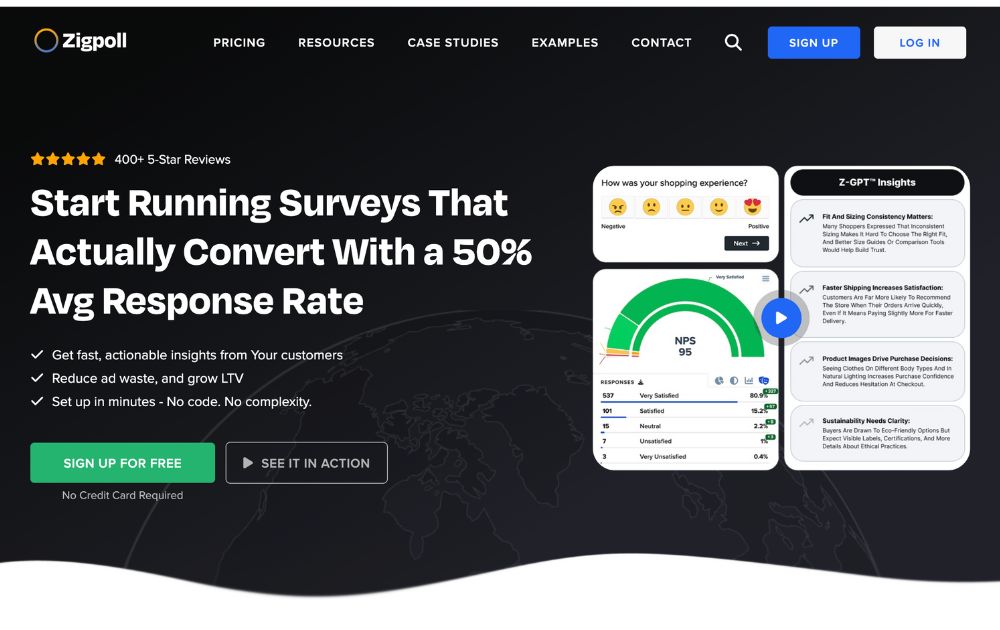
Zigpoll remains a solid choice for collecting customer insights, but its capabilities have expanded over the past two years. Today, Zigpoll uses AI to generate survey questions, summarize responses, detect sentiment, and even segment customers automatically.
Entrepreneurs can embed polls on websites, email campaigns, or post-purchase pages, then let Zigpoll’s AI categorize feedback into actionable insights. This helps brands quickly spot trends, product issues, or opportunities for upselling.
10. Pitches.ai

Are you looking to increase your business funding? Then creating the perfect pitch deck should be your priority. You can easily and quickly do this with Pitches.ai. It is an AI-powered tool for entrepreneurs to develop and refine pitch decks.
Pitches.ai analyzes pitch decks and gives you feedback on their structure, persuasiveness, and clarity. This gives you a higher probability of success. It offers four premium plans with prices ranging between $95 to $1,195.
Conclusion
Artificial intelligence is slowly becoming popular among business owners. Thanks to their many advantages, it’s no surprise that many will be using the technology from now on. These AI tools for entrepreneurs are a great example, and you should check them out today.
Featured Image Credit: Photo by Anna Shvets from Pexels
Business
What’s the Best Graphic Design Service for Education & eLearning?
Published
24 hours agoon
November 13, 2025
TLDR: Best unlimited graphic design services for education and eLearning: ideal for quick turnaround, high-quality designs, and affordable pricing.
84% of communication is visual. Thus, for a world of education and eLearning, graphic design is imperative in the creation of projects for students and complex concepts. From interactive course materials to compelling marketing, strong visuals drive success. But finding a reliable, affordable design partner is tough.
Thus, it’s hard to come by a reputable service that can provide all your needs at a reasonable cost when it comes to project designs, turnaround expectations, anticipated quality and budgetary allowances.
But never fear! We’ve vetted what’s best for you!
1. Penji
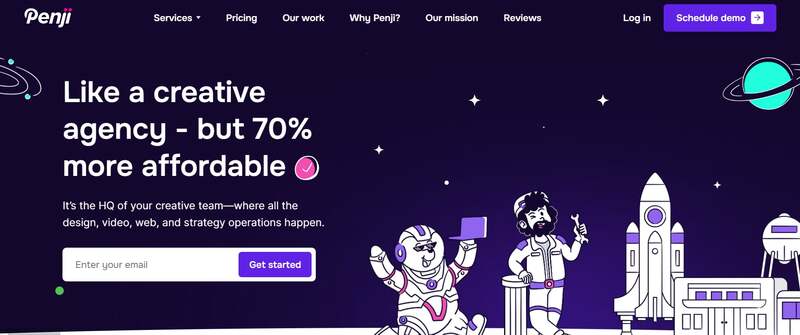
If you’re looking for the best for education and eLearning purposes, Penji has the best overall value as quality, turnaround time and offers have placed it at a reasonable flat fee monthly.
Penji is an unlimited graphic design service that works as you would expect – unlimited – which means that for a flat fee monthly, you’ll have access to your very own team of designers.
Features:
- A Well-Qualified Team of Designers: Whether you need e-learning interactive designs to course visuals (infographics, presentations) Penji’s graphic designers make everything visually appealing to an academic audience.
- Turnaround: Average turnaround is about 24-48 hours so you can keep churning out material for course creation or marketing.
- Unlimited Revisions: As many times as needed to get your requested project right.
- Accessibility and Submission Portal: Penji comes with a site that’s fairly user-friendly for ease of access in submissions, critiques and conversations.
2. Kimp
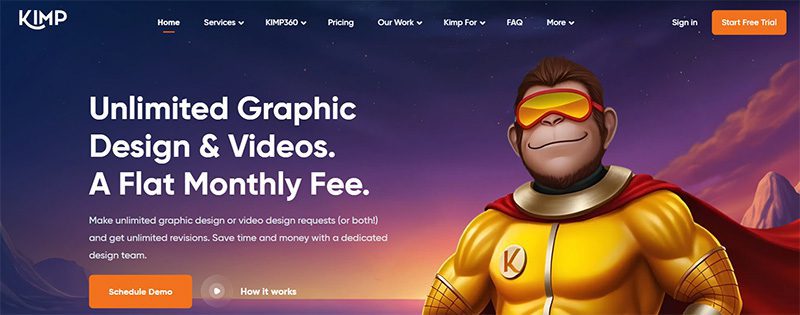
If you need an unlimited source and don’t mind one that’s second best, Kimp boasts graphics and even video. Consider this option with caution – some reviews do mention turnover can vary and this wouldn’t be the best reliable option if you’re on a time crunch for every project.
Features:
- Wide Range of Services: Kimp provides both graphic design and video services, offering a versatile creative solution.
- Dedicated Designers: You’ll work with a group as your designated team so you get to know your specific creators.
- Easier Feedback Opportunities: Feedback can be given on the Kimp site for creations with visual access as to what you want changed.
3. Design Pickle
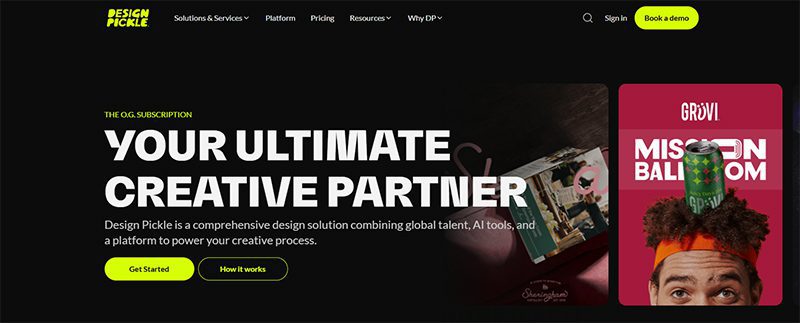
Design Pickle was one of the first unlimited graphic design services to go for an unlimited design game. This is helpful if you need custom illustrations or a presentation created for a polished look in any educated (or business) endeavor – higher tier subscriptions go with probability – but in all other worlds, it has more value than other sites when stacked against one another.
- Unlimited revisions to get the exact illustrations or graphics needed for presentations or other projects.
- Quick turnaround times to keep on schedule with 48 hour returns.
- Global Design Team: Boasts a diverse team of professional designers, offering expertise across multiple industries to match various client needs.
4. ManyPixels
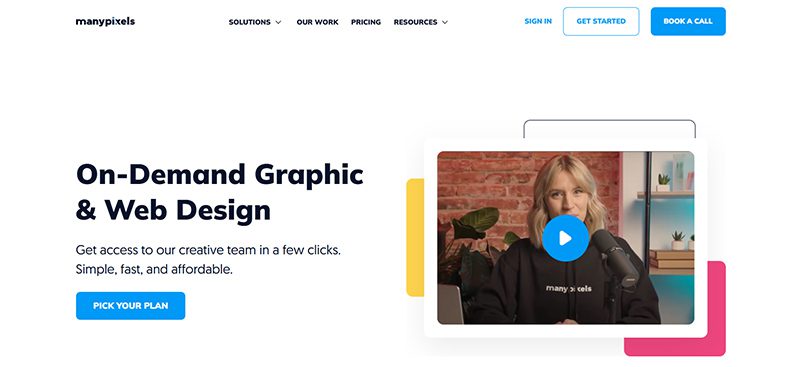
ManyPixels is another reputable source that has unlimited graphic designs services but assignment transparency which means you’ll have one assigned designer to you, but they’re a bit more transparent with regards to who may (or not) be able to help you but will get back to you with good timing.
- One Dedicated Designer: ManyPixels is a company that does not have unlimited designs, however you’ll have one assigned who will know your needs better than most.
- Good Turnaround Time: Generally they’ll turn around assignments within 1-2 days after submission regardless of simplicity/complexity.
- Reliable Designs: Good for marketing or simple visuals/templates you’d want to use for educational continuity but they may not give as specialized feedback as you’d think.
Cover Image Credit: Photo by Fox on Pexels
Business
What are the Best Graphic Design Services for Fashion Brands?
Published
2 days agoon
November 11, 2025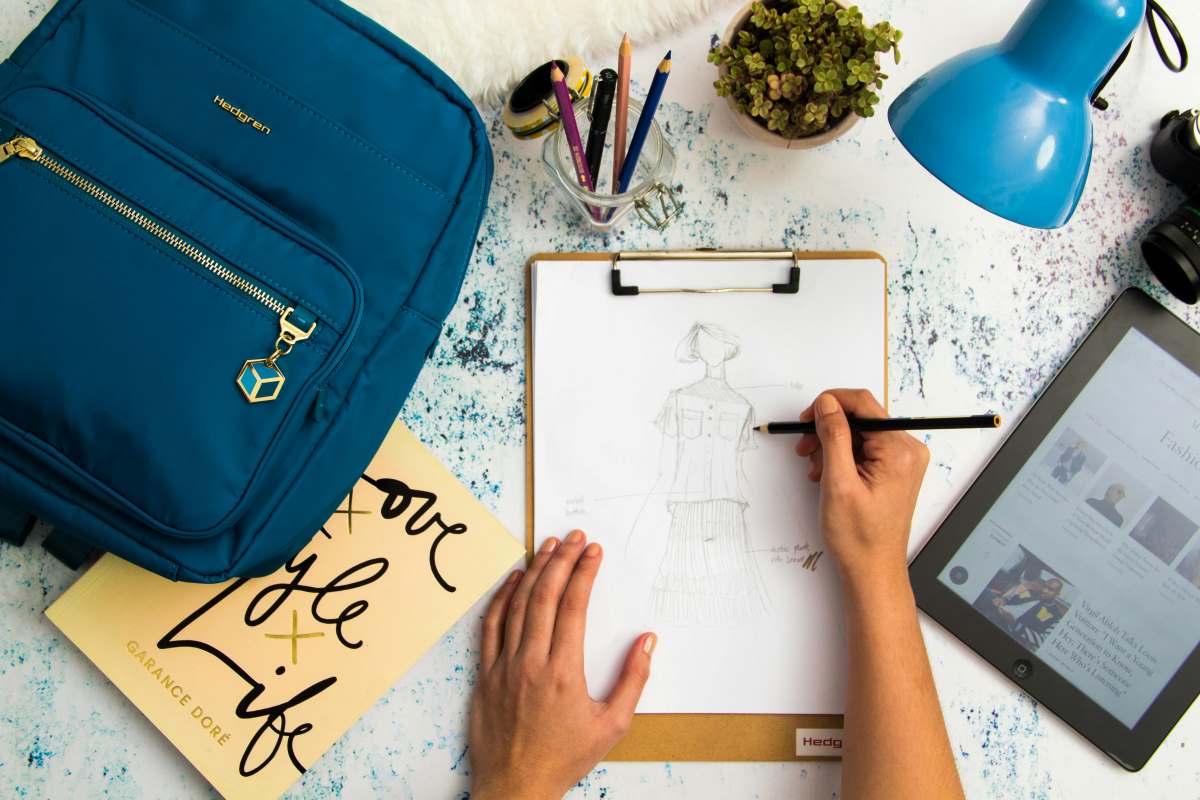
For many businesses, graphic design means conversions, credibility, and brand recall. So, if you’re in the fashion industry, you also need to have significant visual assets if growth is your priority. If you need help finding the best graphic design service for your fashion brand, we made a list of the top five:
Penji

An on-demand graphic design platform, Penji offers unlimited graphic design services for fixed monthly fees. This allows you to send as many requests for lookbooks, catalogs, packaging designs, and many other marketing materials for less. Its team of top-notch designers assures you of consistent and high-quality work worthy of your fashion business.
Kimp

Built to support the creative needs of many businesses, including fashion, Kimp is another platform that offers unlimited design requests. It can craft product mockups, campaign visuals, packaging designs, and social media graphics, among others. It also provides video editing services, making it ideal for fashion companies that run reels, seasonal promos, or behind-the-scenes edits.
Designity

Combining agency-level creative direction with flexible access to US designers, Designity suits fashion brands that need polish, strategy, and scalability. They can provide you with social media graphics, online ads, label designs, logo and branding, and magazine layouts, among other key services.
Flocksy

If your business needs video editing, copywriting, and voice-over services, then Flocksy is the best graphic design service for your fashion brand. In addition, it also offers custom illustrations, packaging design, infographics, and many other design services. It operates on a flat-rate pricing model, making it a more cost-effective option than hiring freelancers or working with expensive agencies.
Reel Unlimited

With its predictable pricing and wide array of graphic design services, Reel Unlimited is an excellent design solution for fashion brands. Like many on this list, it offers unlimited design requests and fast turnaround times, making it the ideal option for those with tight schedules and limited budgets.

What’s the Best Graphic Design Service for Beauty & Wellness Brands

10 Best AI Tools for Entrepreneurs

Our Top 10 Video Editing Tools for Smarter Content Production

What’s the Best Graphic Design Service for Education & eLearning?

What are the Best Graphic Design Services for Fashion Brands?

How TikTok and Instagram Track You Using In-App Browsers

What’s the Best Graphic Design Service for Marketing Agencies?

Top 10 Tablets to Use in 2025

Our Top 10 Video Editing Tools for Smarter Content Production

How TikTok and Instagram Track You Using In-App Browsers

Top 10 Free and Paid Employee Communication Tools

10 Best AI Tools for Entrepreneurs

10 Best Photo Editing Apps for Personal and Business Use in 2026

What’s the Best No Limit Creatives Alternatives?
Trending
- Technology4 hours ago
Our Top 10 Video Editing Tools for Smarter Content Production
- Technology3 days ago
How TikTok and Instagram Track You Using In-App Browsers
- Business2 hours ago
10 Best AI Tools for Entrepreneurs
- Uncategorized3 days ago
What’s the Best Graphic Design Service for Marketing Agencies?
- Business2 days ago
What are the Best Graphic Design Services for Fashion Brands?
- Business24 hours ago
What’s the Best Graphic Design Service for Education & eLearning?
- Uncategorized56 minutes ago
What’s the Best Graphic Design Service for Beauty & Wellness Brands




